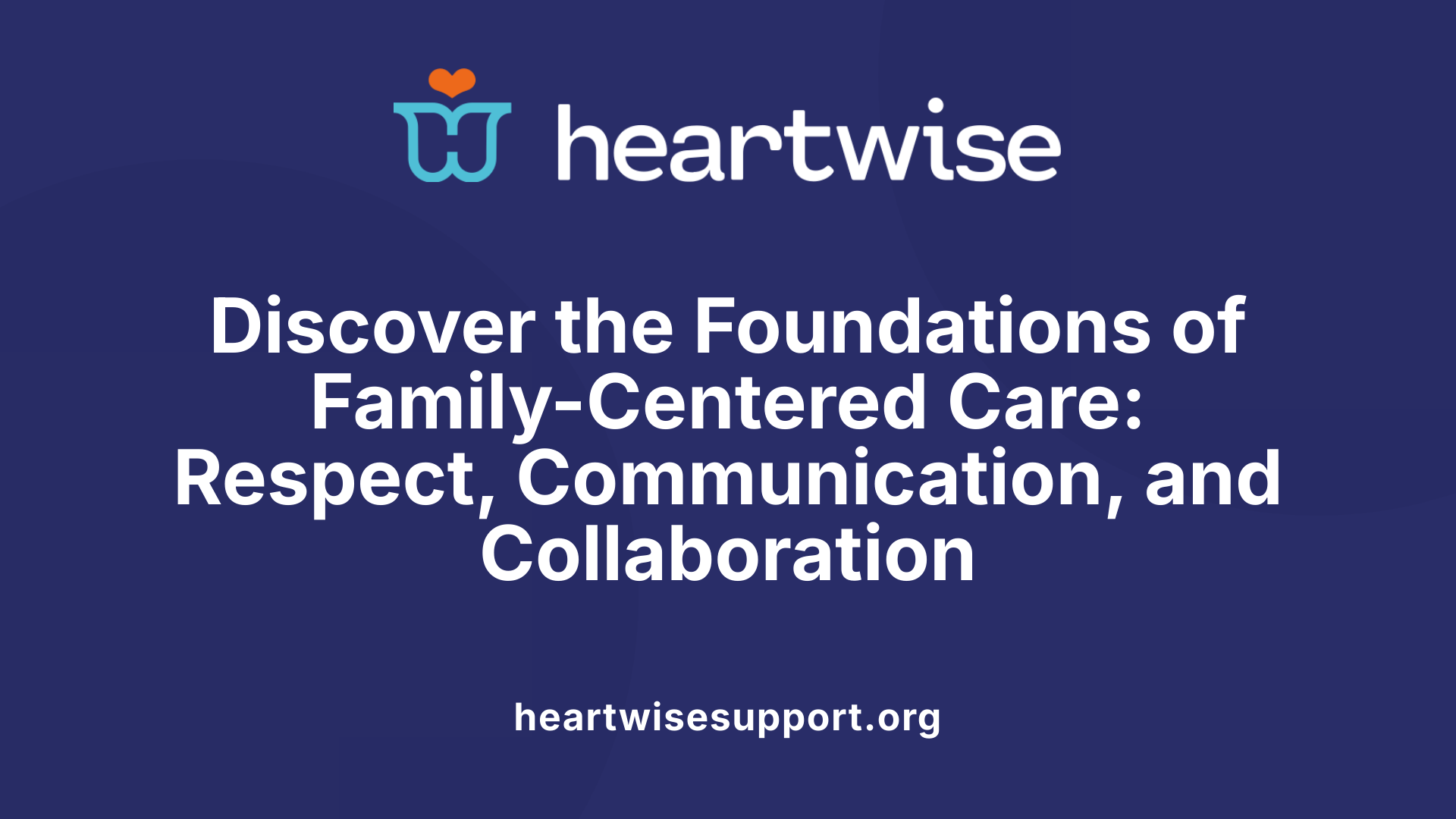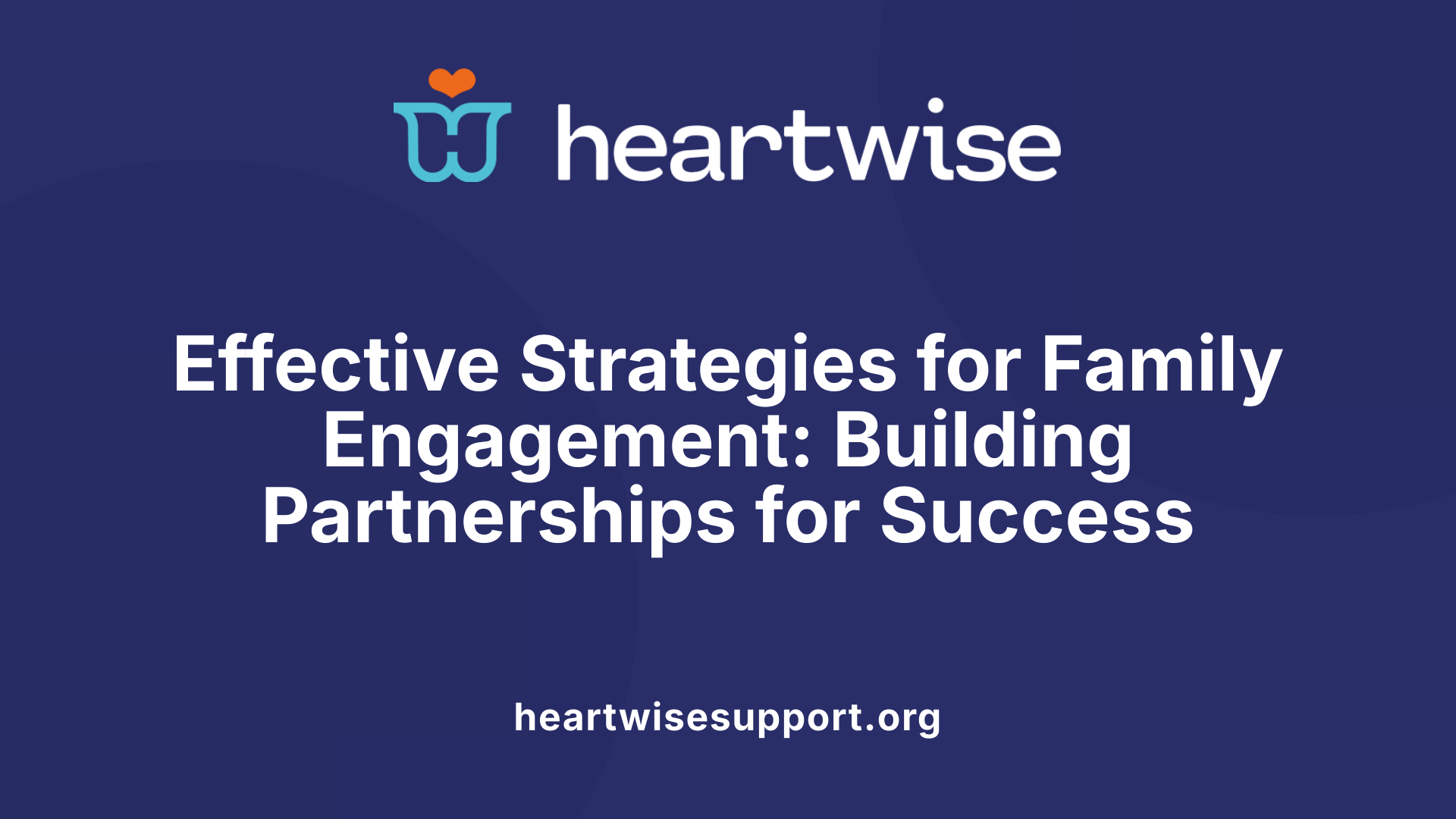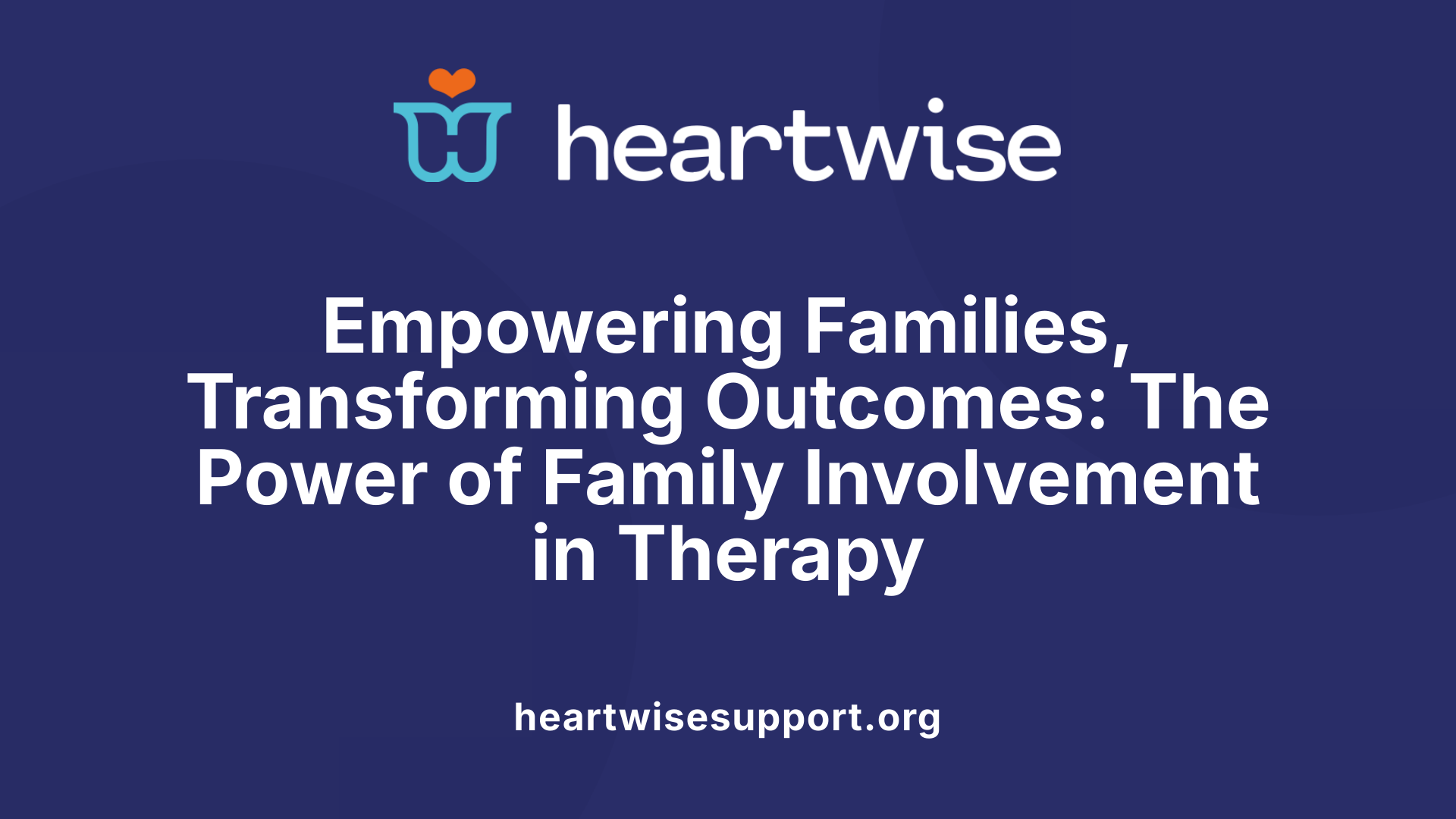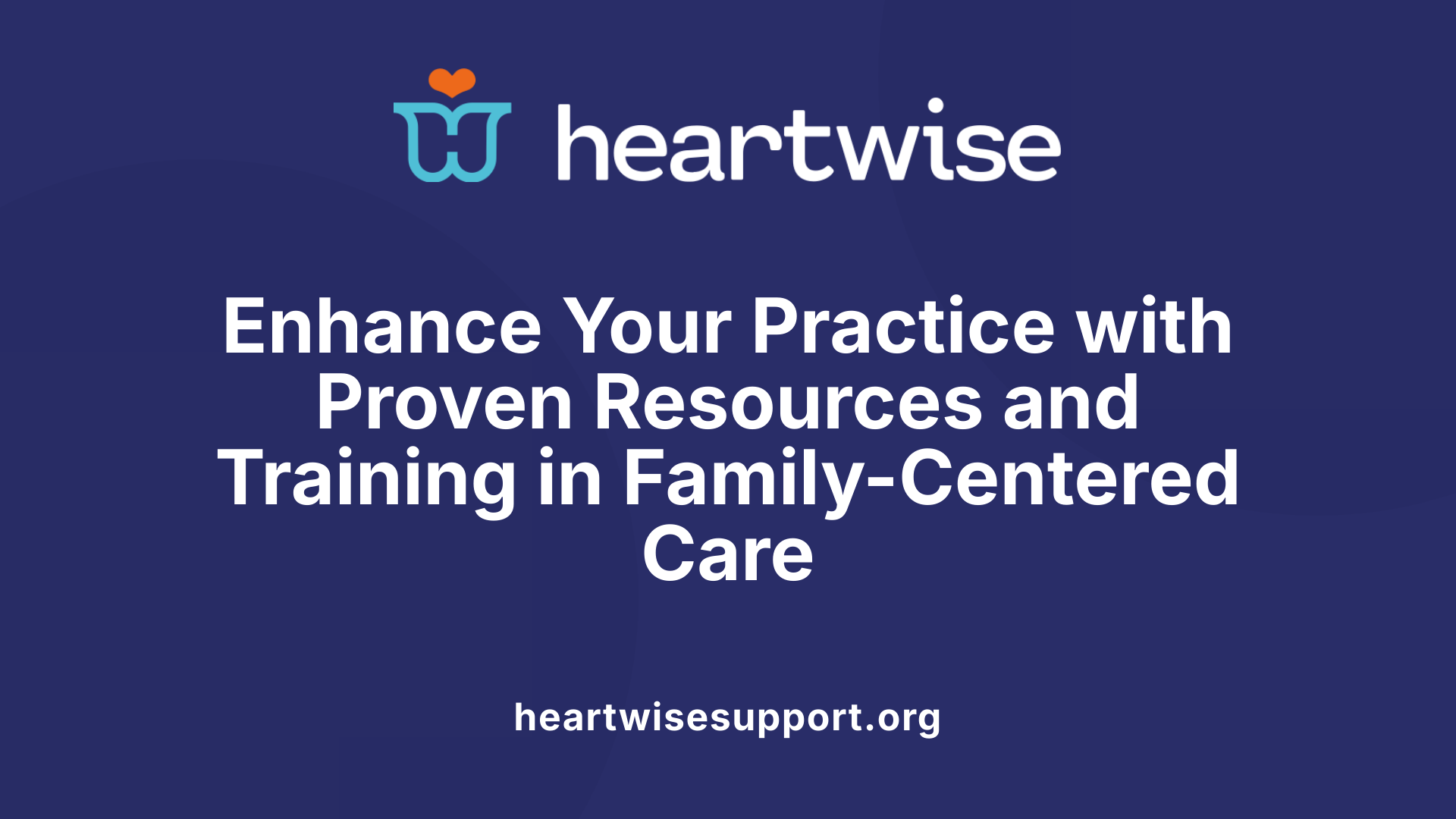Understanding Family-Centered Care in Modern Therapy
Family-centered approaches have become a cornerstone of effective therapy across diverse settings, emphasizing the vital role families play in achieving positive outcomes. Rooted in principles of partnership, respect, and shared decision-making, this model recognizes families not merely as support systems but as active agents in care processes. By aligning healthcare and social services around the family unit, practitioners foster environments where trust, empowerment, and cultural sensitivity flourish, ultimately leading to better health, behavioral, and developmental results.
Core Principles and Frameworks of Family-Centered Care
 Family-centered care (FCC) is an approach grounded in principles that respect and empower families as active participants in the healthcare process. At its core, FCC emphasizes respect and dignity for families, recognizing their unique values, cultures, and needs. This principle encourages healthcare providers to treat families with kindness and as equal partners, fostering trust and mutual respect.
Family-centered care (FCC) is an approach grounded in principles that respect and empower families as active participants in the healthcare process. At its core, FCC emphasizes respect and dignity for families, recognizing their unique values, cultures, and needs. This principle encourages healthcare providers to treat families with kindness and as equal partners, fostering trust and mutual respect.
Open communication and information sharing are vital components of FCC. Providers strive to deliver clear, unbiased information about diagnoses, treatment options, and care plans, enabling families to make informed decisions. This transparency ensures that families feel confident and supported throughout the care journey.
Active participation recognizes families as essential members of the healthcare team. Through involvement in care planning, decision-making, and policy development, families help tailor interventions that are most appropriate and effective for their loved ones. This collaboration enhances the quality of care and promotes better health outcomes.
Cultural sensitivity and diversity considerations are integral to FCC. Recognizing and respecting diverse cultural backgrounds and beliefs ensures that care strategies are inclusive and respectful, fostering a comfortable environment for all families.
Frameworks supporting family-centered care advocate for interdisciplinary collaboration among healthcare providers and services. Coordinating efforts across disciplines ensures continuity of care and smooth transitions between different care settings.
Practices embodying these principles include fostering ongoing, open communication, working jointly in the child's or individual's best interest, and building solid, trusting relationships. These strategies create a healthcare environment that values families’ insights and preferences, ultimately leading to improved satisfaction, health outcomes, and family resilience.
In summary, family-centered care’s principles and frameworks share the common goal of creating a respectful, collaborative, and inclusive healthcare environment that values families as vital partners in health and well-being.
Evidence Supporting Family-Centered Approaches and Their Impact on Therapy Outcomes
What evidence supports the effectiveness of family-centered approaches in therapy?
Recent research highlights the significant benefits of family-centered care in various therapy settings. Multiple studies demonstrate that involving families actively in treatment increases their confidence and sense of empowerment. This engagement not only encourages higher family participation but also correlates with improved developmental, behavioral, and health outcomes, especially in children and individuals with disabilities.
Research also indicates that family-centered models promote stronger family bonds and support the maintenance of routines that are natural to the family's daily life. Such approaches have been linked to better social participation, reduced behavioral challenges, and a higher overall quality of life for those receiving care.
The integration of tele-intervention into family-centered practice illustrates enhanced access to services. Telehealth offers flexible, remote engagement that overcomes barriers related to distance and transportation. Studies show that this mode is well accepted by families and maintains high levels of active participation and joint problem-solving, particularly in rural or resource-limited community settings.
In the context of chronic mental health conditions, family participation is associated with reduced relapse rates and improved adherence to treatment plans. Empirical evidence supports models like Family Centered Treatment (FCT) and Family-centered collaborative care (FCCC), which have demonstrated positive behavioral, social, and health outcomes when families are central to the care process. Overall, research consistently confirms that family involvement, empowerment, and culturally sensitive, collaborative approaches optimize therapy effectiveness, leading to greater satisfaction and better long-term results for clients and their families.
| Evidence Sources | Therapy Outcomes | Additional Notes |
|---|---|---|
| Recent scientific reviews | Increased participation, confidence, and empowerment | Supported by multiple randomized and longitudinal studies |
| Tele-intervention studies | Improved access, early diagnosis, and intervention | Especially effective in rural and underserved communities |
| Family therapy in mental health | Reduced relapse, better social functioning | Emphasizes active participation and family strengths |
| Family-centered models | Enhanced developmental and behavioral outcomes | Empirical support from diverse clinical settings |
Implementation Strategies and the Role of Family Involvement in Therapy Success

What are some strategies for engaging families?
Effective implementation of family-centered approaches begins with creating a partnership based on open communication and mutual respect. This involves actively involving families in goal setting, decision-making, and treatment planning. Providing them with clear information, resources, and emotional support fosters confidence and competence in their caregiving roles. Training sessions, educational materials, and regular feedback help families feel empowered and prepared to participate actively in therapy.
How does the use of digital technologies like telehealth facilitate family involvement?
Digital tools such as telehealth and tele-intervention offer flexible, accessible options that can greatly enhance family participation, especially in rural or resource-limited areas. Tele-interventions reduce logistical barriers like travel time and transportation costs, making it easier for families to engage consistently. Proper training for families and practitioners on using these technologies ensures smooth implementation, allowing for real-time collaboration, active problem-solving, and ongoing support outside traditional clinical settings.
What is the importance of organizational commitment and policy integration?
Embedding family-centered care into organizational policies and practices is essential for sustainable implementation. Leadership support helps prioritize family involvement as a core value, influencing service delivery models and resource allocation. Incorporating family-centered principles into policies and routine evaluations encourages a culture of respect, participation, and shared decision-making. Organizations that involve families as advisors and regularly assess outcomes foster continuous improvement and reinforce the importance of family partnership.
How can family training and education enhance therapy outcomes?
Providing targeted training and educational resources equips families to support therapy goals effectively. Parent training sessions, informational workshops, and community support groups increase understanding of treatment strategies and behaviors, fostering consistency across environments. Educated families are better able to reinforce positive behaviors, monitor progress, and adapt interventions at home, leading to improved adherence and sustained outcomes.
Why is ongoing collaboration and feedback crucial?
Continuous collaboration between families and practitioners ensures that interventions remain relevant and responsive to the family's evolving needs. Regular feedback sessions help identify challenges, successes, and areas for adjustment, maintaining engagement and motivation. This ongoing dialogue builds trust, enhances the quality of care, and promotes shared responsibility, ultimately contributing to more successful therapy outcomes and stronger family well-being.
The Role of Family in Enhancing Therapy Results and Long-Term Outcomes

How does family participation in goal setting influence outcomes?
Family involvement in goal setting ensures that therapeutic objectives align with the family's priorities and daily realities. When families actively participate, they better understand the aims of therapy and are more committed to achieving shared goals. This collaboration fosters a sense of ownership, increasing motivation and consistency in implementing strategies at home and in community settings.
In what ways does strengthening family dynamics impact children’s development?
Healthy family relationships provide a secure base for children, supporting their emotional and social growth. Improved communication, trust, and cooperation within the family can lead to better behavioral regulation and social skills. Practitioners often focus on enhancing family functioning as a core part of the therapy process, recognizing that strong family bonds serve as a foundation for sustainable developmental progress.
How does shared responsibility and emotional support contribute to therapy success?
When families share responsibility for intervention activities, there is greater consistency and reinforcement of skills learned in therapy. Emotional support from family members can also alleviate anxiety and encourage resilience. This shared effort promotes a positive emotional climate, making children feel valued and understood, which enhances their engagement and responsiveness to therapy.
What impact does family involvement have on behavior and developmental progress?
Active participation of families typically leads to improved behavior management and developmental gains. Engaged families can better monitor progress, provide immediate feedback, and adapt strategies to suit their child’s evolving needs. This continuous involvement helps reinforce positive behaviors, reduces challenging behaviors, and accelerates skill acquisition.
How does empowering families and building resilience influence long-term outcomes?
Empowerment initiatives, such as providing families with information, resources, and decision-making opportunities, foster confidence and independence. Resilient families are better equipped to handle setbacks, adapt to changing circumstances, and advocate for their children’s needs. Such empowerment not only sustains gains made during therapy but also contributes to healthier familial relationships and improved quality of life.
| Aspect | Influence on Therapy | Family Role | Supporting Evidence |
|---|---|---|---|
| Goal Setting | Enhances motivation and commitment | Active participation | Research shows higher adherence with family involvement |
| Family Dynamics | Promotes emotional stability | Strengthening relationships | Better family cohesion correlates with developmental progress |
| Shared Responsibility | Ensures consistency | Joint effort in implementing strategies | Families sharing roles see faster improvements |
| Behavior & Development | Accelerates progress | Continuous monitoring and support | Family engagement linked with better behavioral outcomes |
| Empowerment & Resilience | Sustains success | Building confidence and skills | Empowered families contribute to long-term stability |
Family involvement in therapy fosters a collaborative environment that promotes growth, resilience, and sustained success. When families are active partners, children benefit from consistent support, better emotional health, and improved developmental trajectories.
Resources, Training, and Best Practices for Family-Centered Care Implementation
 Numerous resources and educational materials are available to help professionals implement family-centered treatment strategies effectively. These include detailed manuals such as the "Wheels of Change" and the "Family Centered Treatment Design and Implementation Guide," which offer step-by-step guidance on integrating family-centered principles into practice.
Numerous resources and educational materials are available to help professionals implement family-centered treatment strategies effectively. These include detailed manuals such as the "Wheels of Change" and the "Family Centered Treatment Design and Implementation Guide," which offer step-by-step guidance on integrating family-centered principles into practice.
Training programs and workshops play a vital role in equipping practitioners with essential skills. These often feature online modules, in-person workshops, and hands-on practice opportunities led by certified trainers, ensuring fidelity to the family-centered model.
Evidence-based guidelines and toolkits further support practitioners by providing research-backed recommendations. Organizations like the National Child Traumatic Stress Network (NCTSN) publish accessible resources that focus on trauma-informed, culturally sensitive, and holistic family interventions.
Advocacy and policy support are also crucial for sustaining these practices. State and national policies promote expanded access to family-centered services, including family-centered medication-assisted treatments (MAT) and integrated community programs, which help embed practice standards across various healthcare and social service settings.
Building a culture of family-centered practice involves organizational commitment at all levels. This includes training staff in open communication, cultural responsiveness, and collaborative decision-making, establishing an environment where families feel empowered, supported, and engaged.
Overall, these resources and training initiatives aim to enhance the quality of care, promote family empowerment, and improve developmental and health outcomes for children and families. Continuous education, supported by robust guidelines and policy frameworks, forms the backbone of effective family-centered care implementation.
The Essence of Family-Centered Care in Modern Therapy
In conclusion, family-centered approaches have demonstrated profound benefits across healthcare and social services, significantly improving therapy outcomes. By prioritizing respect, partnership, and empowerment, these models foster an environment where families are active participants in the healing process. The integration of evidence-based practices, innovative implementation strategies like tele-intervention, and a focus on cultural responsiveness are reshaping how practitioners deliver care. As the field continues to evolve, ongoing education, policy support, and commitment to family engagement remain vital for realizing the full potential of family-centered care, ensuring that every individual receives personalized, effective, and compassionate support.
References
- Evidence-Based Implementation of the Family-Centered Model and ...
- Family-Centered Practice in Social Work | VCU MSW
- Family-centered outcomes that matter most to parents: A pediatric ...
- Therapist and Parent Perspectives on Family-Centered Care in ...
- Family-Centered Approach
- ABA Therapy in Center: How Involving Parents Makes a Difference
- Family-Centered Approach











